Review for Baby Love
‘Baby Love’ is definitely a product of its era. A film this controversial would probably engender great protest today – perhaps rightfully so given that its main protagonist is a 15 year old girl, played by a 15 year old girl. It marks the big screen debut of Linda Hayden who would later find fame in Hammer films as well as Confessions films with then boyfriend, the uber-cheesy Robin Asquith. But that was all yet to happen.
Tightly directed by Alastair Reid (Traffik, Selling Hitler), ‘Baby Love’ is a depressing psycho-sexual drama where it’s never clear who is being exploited by whom. It kicks off with a very brief and highly depressing scene which shows a middle-aged Diana Dors committing suicide in a steam-filled bathroom, water spilling out from an over-flowing bath. (Apart from a couple of brief ‘nightmare’ cameos later on, this is the sum of Dor’s contribution. She doesn’t utter a single word in the film).
We then cut to a typical comprehensive school rabble following the progress of a girl in their midst who struts from the school gates to where the older boys are hanging out and, in full view of dozens of her class mates, sets about snogging one of the gang. She then sets off home, attempting to steal a newspaper from an old seller, before opening up the outside bathroom door to find her dead mother.
In a few simple scenes we have established that she is a unruly, promiscuous child who has now lost her mother in terrible circumstances.
We then cut to a man (a young and debonair Keith Barron) arriving from work to his swanky London home only to find a very suburban, middle-class party in full swing. He finds a quiet room, picks up a letter along with a glass of whiskey and starts to read. It’s from Luci, the fifteen year old girl, who explains that her Mother has died and she now needs somewhere to stay.
It turns out that Barron’s character, Doctor Quayle, was once her Mother’s lover and he has maintained contact over the years, sometimes sending money to help them out. He agrees with his wife that they should take her in.
Soon she is settled into a new and luxurious life with the Quayles who, by coincidence have a fifteen year old son. Although she loves this new luxurious life, she is also full of resentment that she and her Mother were not able to enjoy it. So she sets about seducing everyone in the household one by one in a misguided effort to destroy this ‘perfect’ family.
It’s a surprisingly effective film, despite its strange narrative, and the performances are all excellent. Barron barely shows any emotion, reserving it for the one or two moments where it really counts, and it’s surprising just how good he is here. I’d always dismissed him as a jobbing sit-com actor but he’s clearly capable of so much more than merely that.
Hayden is fantastic in the role she plays – so utterly believable that you can’t help but wonder how much she was like the character she was playing at the time. She’s very able to move from vulnerable child to spiteful and manipulative adult in moments, sometimes within the space of a single scene. Notoriously she appears naked, or semi-naked, several times in the film which gave it enough shock value at the time to create interest in what was other wise such a dark and heavy film. It could be argued that this was essential in that particular role to build the character (which I agree with) but it's also very contentious as to whether this should have been allowed for someone under the age of 16.
Ann Lynn who plays the Mother also turns in a startlingly good performance. It’s never clear whether her feelings are just nurturing kindness or whether she’s fighting a deep and sexual attraction to the girl and as a result there are several scenes that make uncomfortable viewing. Is she seducing the young girl? Or is the young girl attempting to seduce the older woman? It’s very uncomfortable viewing.
The young son (Derek Lamden) is convincing too. A seething, pubescent youth filled with contradictory longings – veering from the moralistic to the desperate suitor. Luci, of course, plays him like a fiddle.
There are a couple of curious, fleeting cameos from Dick Emery of all people – seen at the Quayle’s garden parties as something of a sleaze-ball. Like Dors, Emery doesn't get a single line of dialogue.
There are one or two sequences which show swinging London in full swing including a fashionable (Kings Road?) boutique and a club with a heady psychedelic band and lots of drug takers. Unsurprisingly the film was cut by the BBFC for its original UK cinema release although its presented uncut here.
Perhaps most disturbing about Luci as a complex character is her completely inappropriate and docile acceptance of any sexual advance. (A man gropes her in the cinema; she accepts a black man’s advances up a night club almost without question and responds inappropriately to some louts on a row boat). We see hints of her Mother’s disregard for Luci in flashback where a brutish lover is having sex with her Mother as her Mother laughs at Luci. There are even dark hints that perhaps she is the man’s lover too – despite being underage.
It’s a film that is technically rather good too with some excellent camera-work and very inventive editing. It looks in great shape on this transfer too.
There are no extra features other than an image gallery and a two page publicity document which you can access as a PDF.
Although this is a tough and unconventional film, it’s nonetheless very thought-provoking. It’s also incredibly well made. Oddly, it’s release by Network on the same day as another disturbing pscho-sexual drama, ‘Bad Timing’, which in terms of atmosphere and content might be the closest thing to this particular film.
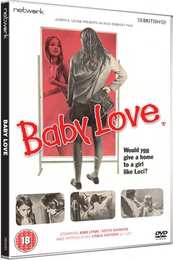
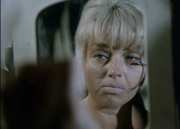

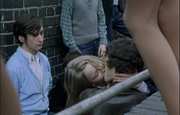
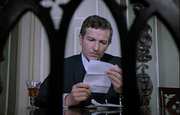

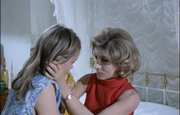
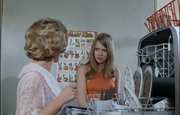

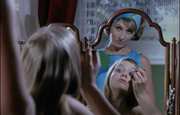



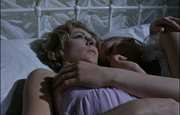
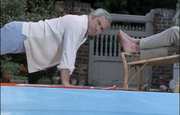
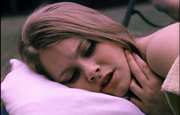

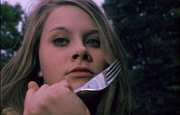


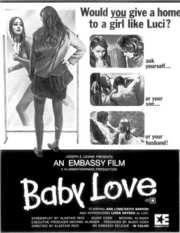












































Your Opinions and Comments
Be the first to post a comment!